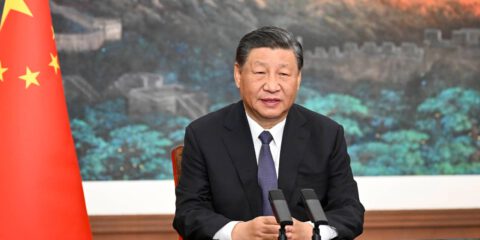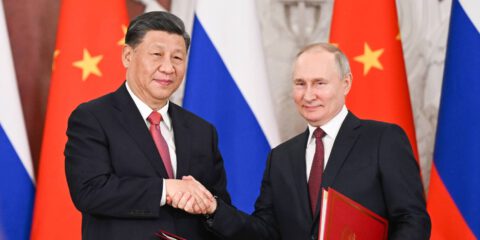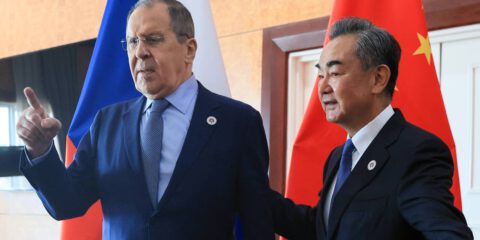An uninterrupted flow of goods from Europe and the Middle East to the Indo-Pacific is critical.
US President Joe Biden announced on September 9 at the G20 Summit in India an ambitious plan for a transportation corridor connecting India with the Middle East and, ultimately, Europe – a possible game changer for global trade. The shipping and rail corridor would include India, Saudi Arabia, the United Arab Emirates, Israel, the European Union, and other countries in the G20.
Indian Prime Minister Narendra Modi asserted that the India-Middle East-Europe corridor will become a basis of world trade for the coming centuries, and history will remember that it was envisioned in India. Indeed, this project was conceived during a meeting of the I2U2 forum of the US, Israel, the UAE, and India (September 2022). In India, it was referred to as the “Western Quad.”
The rail and shipping corridor would enable greater trade and other interactions among the countries, including energy products and digital cooperation. The American-proposed passageway, which gives India a pivotal role, intends to bring Delhi closer to Washington amid its rivalry with China.
It immediately comes to mind that the corridor could constitute one of the more ambitious counters to China’s own Belt and Road Initiative, which sought to connect more of the world to that country’s economy. The announcement comes at a time when Washington is encouraging Saudi Arabia to normalize ties with Israel – a linkage critical for permitting the corridor to reach the Mediterranean on its way to Europe.
Israeli Prime Minister Benjamin Netanyahu has previously discussed the possibility of a train linking Israel to Saudi Arabia via Jordan. There are many obstacles to realizing the American vision. However, they can be overcome with diplomatic acumen and money.
However, if the American goal is to circumvent Chinese influence, the announced corridor needs an eastern extension. This western-oriented corridor neglects important US allies such as South Korea, Japan, Singapore, Taiwan, and Thailand. These states are essential in the ongoing American competition with China.
They are all export-oriented and are energy-dependent upon the Middle East. They have significant markets in Europe. Their security and prosperity hinge upon the American willingness and capability to secure the freedom of the maritime routes east of India.
Moreover, the main arena of US-China competition is the Indo-Pacific. An Eastern Extension of the corridor can be critical to additional states such as Australia and the Philippines. Indonesia and Vietnam are potential supporters. Some of them are democracies that deserve American protection and are clearly in the American camp.
Extending the corridor to the Indo-Pacific emulates George Kennan’s containment strategy, put forth in 1946 to parry Russian expansionism. The eastern wing of the passage has two main choke points, the Malacca and Taiwan straits. A significant proportion of world trade travels via the two straits both ways. Both waterways are recognized among the busiest shipping channels in the world.
Approximately 25% of all oil transported by sea, primarily from the Middle East to East Asia, passes through these straits. Historically, over 100,000 vessels have passed through the channels annually. Significantly, Asia – particularly East and Southeast Asia – has long been considered the world’s manufacturing hub. A large proportion of the manufactured goods go westward.
Any trade corridor needs to be defended militarily. The US must control both straits via its allies or its own maritime power. That requires the US to establish the military might to maintain the freedom of navigation along the extended corridor. An uninterrupted flow of goods from Europe and the Middle East to the Indo-Pacific is critical.
Only an America that can supply security for the trade routes can reassure its allies and hedging states about the American seriousness to help in case of greater Chinese encroachment. The US possesses several diplomatic and military arrangements to respond to increased Chinese economic and military power.
For example, the Quadrilateral Security Dialogue (QSD), commonly known as the Quad, is a strategic security dialogue among Australia, India, Japan, and the US. Less known is the Indo-Pacific Partnership for Maritime Awareness (IPMDA), an offshoot of the Quad, intended to monitor China’s military activity and illegal fishing. In the intelligence area, the US is a part of the Five Eyes intelligence alliance that includes Australia, Canada, New Zealand, and the United Kingdom. All arrangements must be incorporated into an eastern extension.
Nevertheless, both wings of the corridor are susceptible to hostile interference. Iran can act against free trade in the Western Corridor. It already does so by attacking even American ships in its vicinity in the Indian Ocean, and its presence in Yemen is also threatening. Similarly, China acts aggressively in the South China Sea and threatens to invade Taiwan. Taking over the Taiwan Straits would have a significant strategic impact.
The US must demonstrate to the states that getting closer to China is unwise. In the Middle East, anti-American political entities such as Iran, Syria, and even the Palestinian Authority, which signed strategic partnerships with China, must realize that Beijing is not a reliable ally.
The best demonstration is a strong American response to the Iranian challenges. In contrast, neither China nor Russia can project power in the Indian Ocean, signaling that China cannot guarantee security.
President Biden will be well-remembered if his strategic clairvoyance, exemplified by his proposal of an India-Middle East-Europe corridor, leads to the establishment of an eastern extension.
The issues mentioned here will be discussed at a conference in Jerusalem on November 7. This piece originally ran in the Asia Times on September 29.
JISS Policy Papers are published through the generosity of the Greg Rosshandler Family.
Photo: IMAGO / ZUMA Wire








 - בניית אתרים
- בניית אתרים